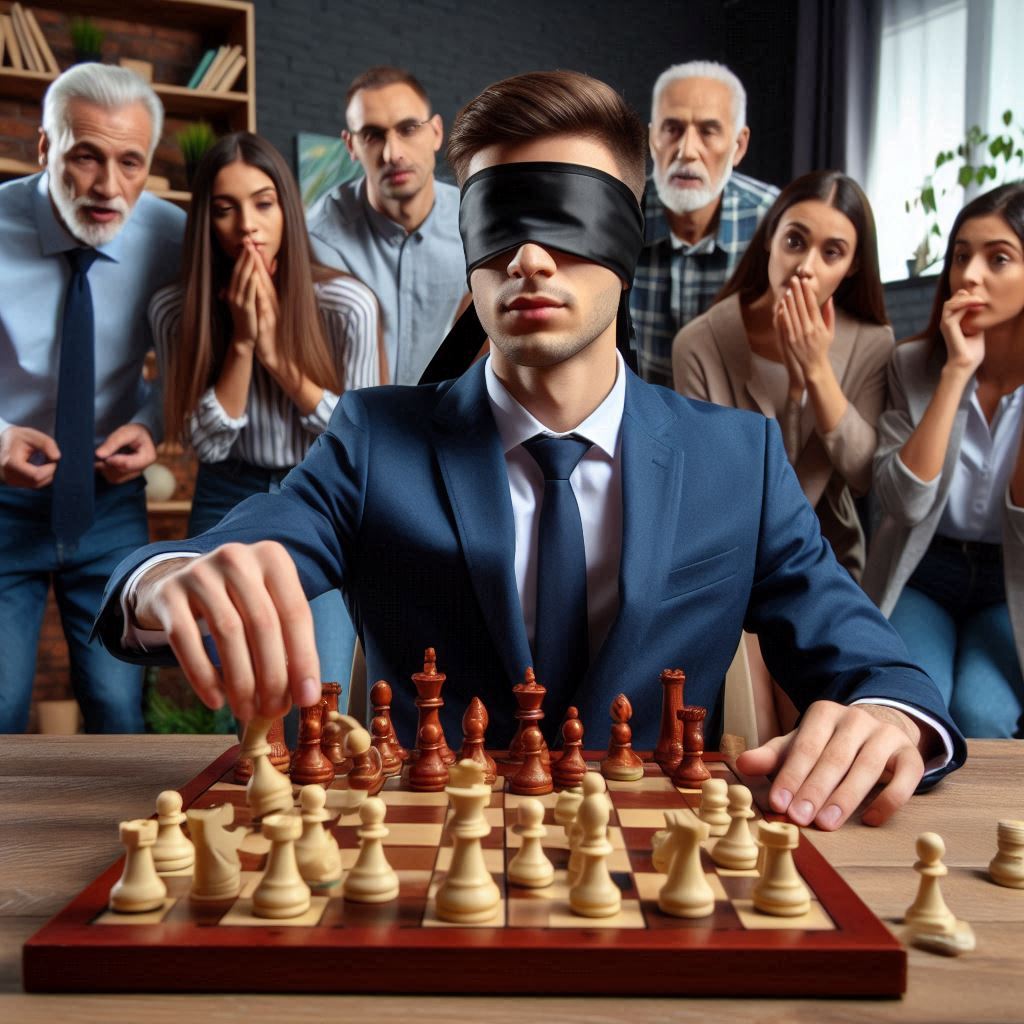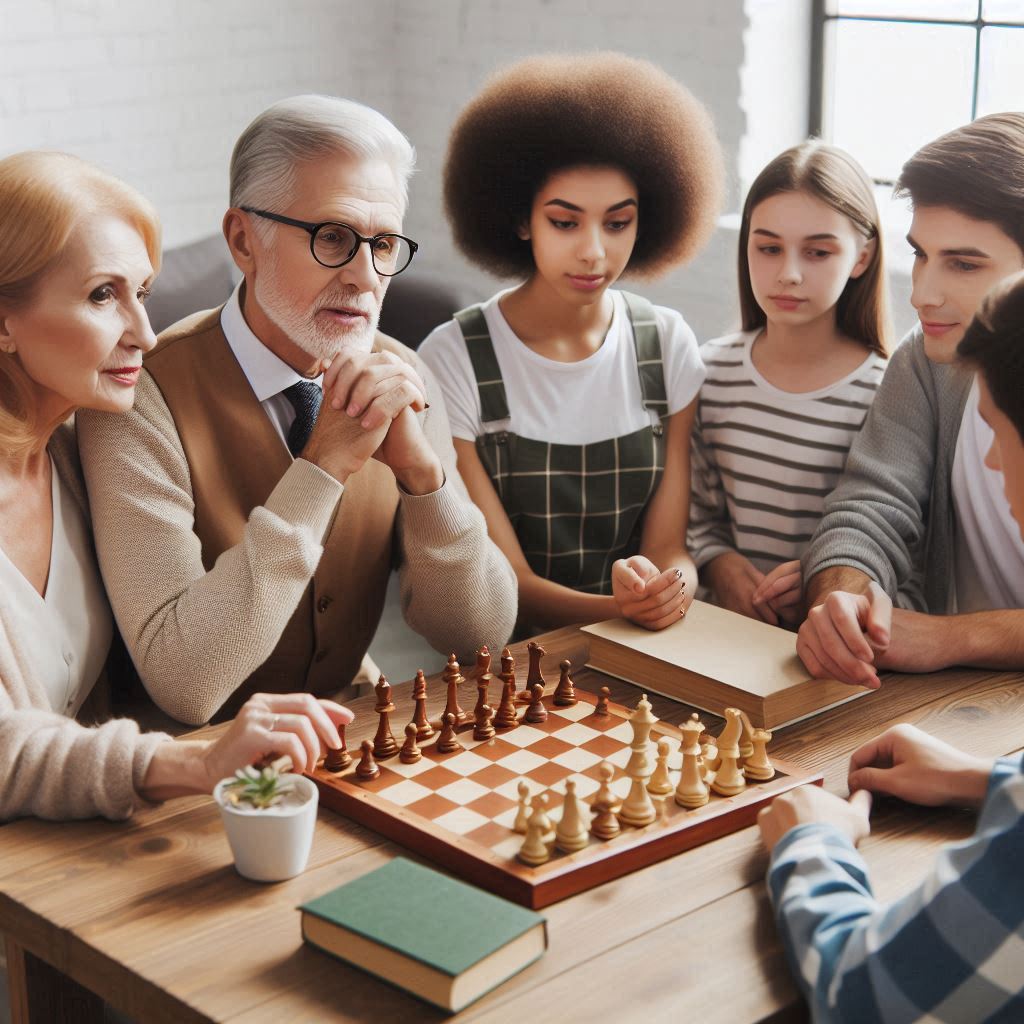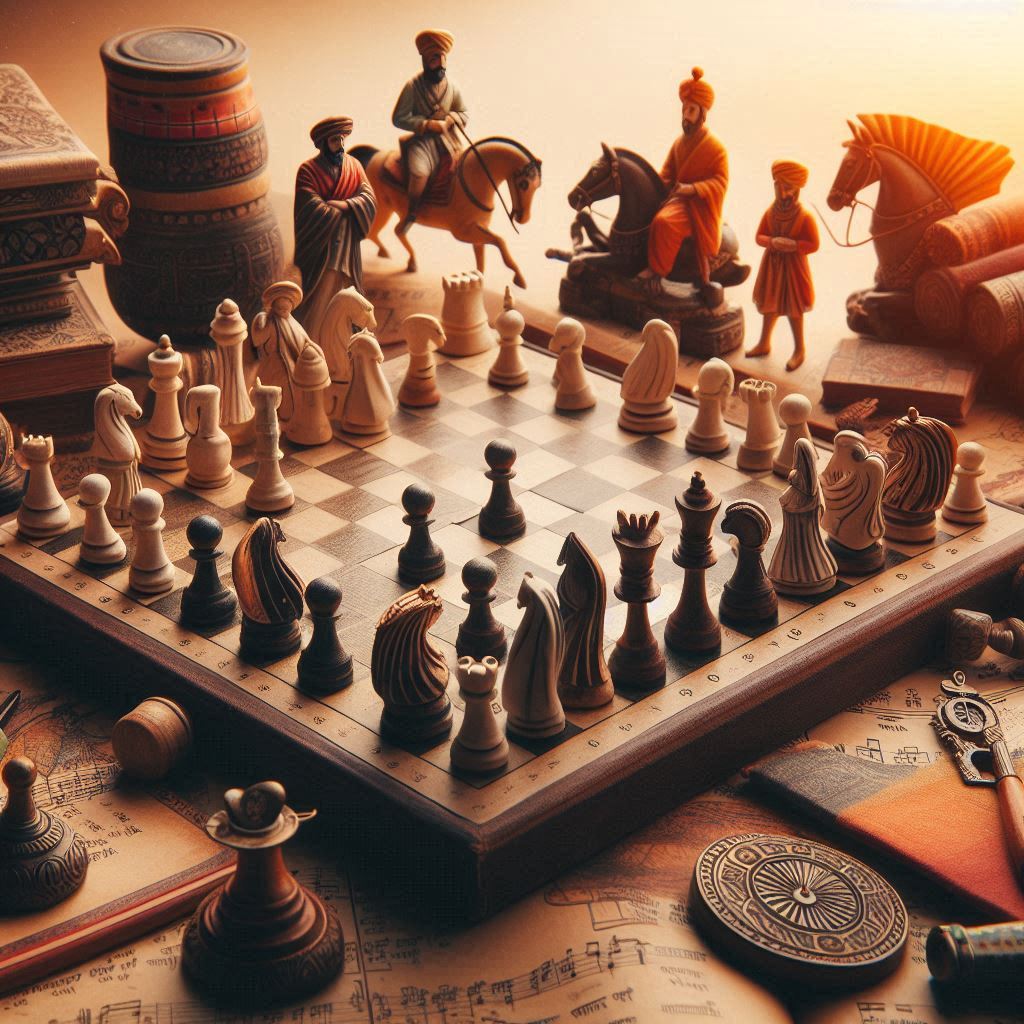Introduction
Playing chess blindfolded is a skill that highlights a player’s exceptional mental visualization and memory capabilities. This impressive feat involves playing the game without seeing the board or pieces, relying entirely on mental imagery and recall. Whether you’re aiming to impress others or enhance your cognitive abilities, learning to play chess blindfolded can be a rewarding and enriching experience. This guide will provide you with essential tips and techniques to master the art of blindfold chess.
Understanding Blindfold Chess
Blindfold chess involves playing a game of chess without seeing the board or pieces. Players rely on their mental visualization to keep track of the positions and movements. This practice not only showcases cognitive prowess but also helps in developing deeper concentration and memory skills. Blindfold chess has historical significance, with grandmasters like Paul Morphy and Alexander Alekhine known for their remarkable blindfold simultaneous exhibitions.
Developing Mental Visualization
Techniques to Enhance Mental Imagery: Improving your ability to visualize the chessboard is crucial for blindfold chess. Start by visualizing the empty board and gradually add pieces, practicing their movements. Regularly imagine different positions and transitions to strengthen this skill.
Strengthening Memory Skills
Exercises to Improve Memory: Memory is key in blindfold chess. Use techniques like the “memory palace,” where you associate each piece and its position with a familiar location or object in your mind. Repeatedly recalling these associations helps improve your memory.
Learning Algebraic Notation
Importance of Notation: Algebraic notation is essential for communicating moves and keeping track of positions in blindfold chess. Ensure you are proficient in reading and writing chess notation, as this will allow you to mentally log each move and visualize the resulting position.
Practicing Visualization Drills
Step-by-Step Drills: Begin with simple drills, such as visualizing a pawn’s journey from its starting square to promotion. Progress to visualizing entire games, move by move. Regularly practicing these drills will enhance your ability to keep track of the board mentally.
Starting with Simple Positions
Gradually Increasing Complexity: Start practicing blindfold chess with simplified positions, such as endgames with few pieces. As you become more comfortable, gradually increase the complexity of the positions until you can handle full games.
Playing with a Partner
Benefits of Practicing with a Friend: Having a partner call out moves or playing blindfold games against them can significantly aid your practice. This interaction helps simulate real-game conditions and provides feedback on your progress.
Using Technology
Apps and Software for Practice: Numerous apps and software are designed to help players practice blindfold chess. Tools like Chess.com’s blindfold mode or specific blindfold chess training apps provide structured practice sessions and help track your improvement.
Common Challenges and Solutions
Overcoming Difficulties: One of the main challenges in blindfold chess is losing track of positions. Regular practice and gradual progression in complexity can help mitigate this. Additionally, staying calm and focused is crucial—panic can disrupt your mental visualization.
FAQs
How do I start learning blindfold chess?
Begin with simple visualization exercises and gradually progress to more complex positions and full games. Consistent practice is key.
Is blindfold chess only for advanced players?
No, players of all levels can learn blindfold chess. Starting with basic exercises and gradually increasing difficulty allows anyone to develop this skill.
How can I improve my memory for blindfold chess?
Use memory techniques like the memory palace, and regularly practice recalling piece positions and moves.
What tools can help with blindfold chess practice?
Apps and software designed for blindfold chess, such as Chess.com’s blindfold mode, can provide structured practice sessions.
How do I keep track of the board in blindfold chess?
Developing strong mental visualization skills and being proficient in algebraic notation are essential for keeping track of the board.
Can blindfold chess improve my overall chess skills?
Yes, blindfold chess enhances concentration, memory, and visualization skills, which are beneficial for overall chess improvement.
Conclusion
Mastering blindfold chess is a testament to a player’s cognitive abilities and dedication to the game. By developing strong mental visualization and memory skills, learning algebraic notation, and practicing regularly, you can achieve proficiency in this challenging yet rewarding aspect of chess. Whether you’re impressing friends or sharpening your mind, blindfold chess offers numerous benefits and adds a fascinating dimension to your chess repertoire.



